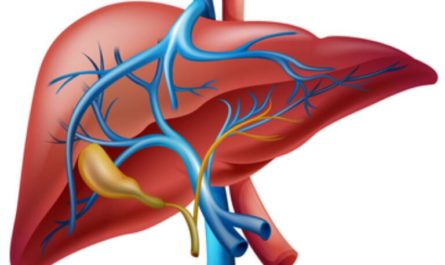Having a sore throat and cough can be quite uncomfortable and frustrating, especially when accompanied by other symptoms like fatigue and body aches. However, it is puzzling when these symptoms persist without the presence of a fever. In this article, we will explore 12 common causes of a sore throat and cough but no fever. Understanding the potential causes will help you to better manage this common health issue.
What is a Sore Throat?
A sore throat, also known as pharyngitis, is a condition characterized by pain, irritation, or scratchiness in the throat. It is a common ailment that can affect people of all ages.
The discomfort may worsen when swallowing or speaking, making it a source of significant discomfort and annoyance. Sore throats are often a symptom of an underlying infection. These conditions include a viral or bacterial infection, or irritants like dry air, smoking, or allergies.
While a sore throat is usually not a severe condition, it can be a sign of a more serious illness in some cases. Therefore, it is essential to understand the causes, symptoms, and potential complications.

Why Do you Have a Sore Throat and Cough but No Fever
1. Viral Upper Respiratory Infections
One of the top causes of a sore throat and cough minus the fever is a viral upper respiratory infection like the common cold. Over 200 different viruses can cause cold symptoms by replicating in the cells lining your nose and throat.
This triggers inflammation and irritation, leading to classic cold symptoms such as:
- Sore, scratchy throat
- Cough (usually starts dry, then turns productive)
- Runny or stuffy nose
- Sneezing
- Mild body aches
- Headache
Colds typically last 7-10 days. The sore throat is often worse during the first 3 days, while the cough lingers longer. Low-grade fevers are possible but less common in adults.
Treatment focuses on rest, hydration, and OTC remedies like cough drops, decongestants, and pain relievers. Antibiotics won’t help since it’s viral. See a doctor if symptoms worsen or last over 10 days.
2. Allergies and Postnasal Drip
Allergies to substances like pollen, pet dander, and dust mites are another frequent cause of sore throats and coughs without fever. When exposed to an allergen, your immune system releases histamines, triggering symptoms like:
- Itchy, watery eyes
- Runny or stuffy nose
- Sneezing
- Postnasal drip
- Sore throat
- Cough (from postnasal drip irritating throat)
With allergies, mucus draining down the back of your throat (postnasal drip) irritates the tissues and stimulates coughing. The drip can also make your throat feel raw and scratchy.
Avoiding allergens is key. Stay inside on high pollen days, keep pets out of bedrooms, and use a HEPA air filter. OTC antihistamines, decongestants, and nasal sprays can provide relief. Gargle with warm salt water and sip tea with honey to soothe your throat.
3. Acid Reflux and GERD
Acid reflux happens when stomach acid backs up into the esophagus, causing a burning sensation (heartburn). It’s called gastroesophageal reflux disease (GERD) if it occurs frequently. The backflow of acid can irritate your esophagus and throat, leading to:
- Heartburn
- Sour taste in the mouth
- Sore throat
- Hoarse voice
- Chronic cough
- Feeling a lump in the throat
With GERD, stomach acid can reach the back of the throat, irritating it and the vocal cords. This triggers coughing and makes the throat feel sore. Fever is not typical.
To manage symptoms, avoid trigger foods, eat smaller meals, don’t lie down after eating, and elevate the head of your bed. Antacids can neutralize stomach acid. See a doctor if symptoms persist despite lifestyle changes.
4. Irritants and Pollution
Exposure to irritants and air pollution can inflame the lining of your throat and airways, causing a sore throat and cough without fever. Symptoms may include[5]:
- Burning in nose and throat
- Cough
- Sore throat
- Hoarse voice
- Shortness of breath
- Wheezing
- Chest tightness
Common irritants include cigarette smoke, wood smoke, air pollution, dust, and chemical fumes. Chewing tobacco, alcohol, and spicy foods can also irritate the throat.
Identify and avoid your triggers. Don’t smoke and steer clear of secondhand smoke. Wear a mask when exposed to dust or pollution. Use a humidifier indoors. Drink water and suck on cough drops to keep your throat moist.
5. Vocal Cord Strain
Straining your vocal cords by yelling, talking loudly, or speaking for long periods without rest can lead to a sore throat and cough without fever. You may also experience:
- Hoarseness
- Dry cough
- Sore throat
- Difficulty speaking
- Neck pain
Vocal cord strain is common in people who use their voice heavily, like singers, teachers, and coaches. Resting your voice is the main treatment. Drink plenty of fluids, use a humidifier, and avoid whispering (it’s harder on your vocal cords than speaking softly).

6. Tonsillitis
Tonsillitis is inflammation of the tonsils, the lumps of tissue at the back of the throat. Viral infections most commonly cause it, but bacterial infections like strep throat can also be the culprit. Symptoms may include:
- Severe sore throat
- Red, swollen tonsils with white or yellow patches
- Difficult or painful swallowing
- Bad breath
- Swollen lymph nodes in the neck
Fever is possible with tonsillitis but not always present, especially with viral causes. Bacterial tonsillitis is treated with antibiotics. Viral cases resolve on their own within 3-5 days. Rest, hydration, saltwater gargles, and OTC pain relievers can ease discomfort.[3]
7. Mononucleosis
Mononucleosis (“mono”) is a viral infection that’s common in teens and young adults. It’s caused by the Epstein-Barr virus (EBV) and spreads through saliva, earning it the nickname “the kissing disease.” Symptoms often include:
- Very sore throat
- Swollen tonsils
- Swollen lymph nodes in neck and armpits
- Extreme fatigue
- Headache
- Skin rash
- Soft, swollen spleen
While fever is a frequent mono symptom, it’s not always present. Mono is diagnosed with blood tests. There’s no specific treatment, so self-care measures are key. Rest, stay hydrated, take OTC pain relievers, and avoid contact sports (to protect the spleen). Symptoms usually resolve within 2-4 weeks, but fatigue can linger for months.
8. Sexually Transmitted Infections (STIs)
Certain STIs like gonorrhea and herpes can cause a sore throat, especially after oral sex. Other symptoms may include[3]:
- Sores in the mouth or on the genitals
- Pain while urinating
- Increased or unusual genital discharge
- Pelvic pain
A sore throat can also be an early symptom of HIV. Fever may or may not be present with STI-related sore throats. Many STIs have no symptoms at all.
If you suspect your sore throat is due to an STI, see your doctor. STIs often require antibiotics or antivirals to clear the infection. Practice safe sex and get tested regularly to reduce your risk.[3]
9. Dry Air and Mouth Breathing
Very dry air, like that found indoors with forced-air heating, can dry out the mucous membranes in your nose and throat. This leads to irritation, scratchiness, and coughing. Breathing through your mouth, often due to chronic nasal congestion, has a similar drying effect.
Using a humidifier to add moisture back into the air can help soothe a dry, sore throat. Drinking plenty of water, using a saline nasal spray, and breathing steam from a hot shower can also provide relief.
10. Neurogenic Cough
In some cases, a chronic cough can be caused by irritation of the nerves that control the coughing reflex. This is known as neurogenic cough or chronic refractory cough. Symptoms include:
- Dry cough that persists for 8 weeks or more
- Cough that doesn’t respond to usual treatments
- Sore throat from frequent coughing
- Hoarse voice
Neurogenic cough is a diagnosis of exclusion, meaning other potential causes must be ruled out first. Treatment may involve speech therapy to learn cough suppression techniques and medications to calm the cough reflex.
11. Throat Irritation from Smoking or Vaping
Smoking cigarettes or vaping can irritate the throat and airways, leading to a sore throat and cough. The heat, chemicals, and particulates in smoke and vape aerosol damage the delicate tissues lining the throat. Symptoms may include:
- Sore, scratchy throat
- Dry cough
- Hoarse voice
- Increased phlegm production
Quitting smoking or vaping is the best way to prevent and resolve a smoke-related sore throat and cough. Drinking plenty of water, using cough drops, and gargling with salt water can help soothe symptoms in the meantime.[5]
12. Throat Cancer
In rare cases, a persistent sore throat and cough could be a sign of throat cancer, especially if accompanied by other warning signs. Symptoms may include:
- Sore throat that doesn’t go away
- Persistent cough
- Hoarseness lasting more than 2 weeks
- Difficulty swallowing
- Unexplained weight loss
- Lump in the neck
- Coughing up blood
While fever is not a common symptom of throat cancer, see a doctor promptly if you have a sore throat and cough that lasts longer than 2 weeks, gets worse, or occurs with other concerning symptoms.

8 Home Remedies for a Sore Throat and Cough but No Fever
Here are 8 simple home remedies that can provide much-needed relief.
1. Honey and Tea
Honey is a natural antibacterial that can help coat and soothe your throat. Mix a tablespoon of honey into a warm cup of tea, such as chamomile or peppermint, which also have anti-inflammatory properties. The warmth of the tea can help relax your throat muscles and provide comfort.
2. Saltwater Gargle
Gargling with salt water is a time-tested remedy for sore throats. Dissolve 1/2 teaspoon of salt in a glass of warm water and gargle for 15-30 seconds before spitting it out. The salt helps reduce swelling and irritation in your throat by drawing out excess fluid. Repeat this several times a day for best results.
3. Steam Inhalation
Inhaling steam from a hot shower or bowl of just-boiled water can help moisturize your nasal passages and may help you relax. Drape a towel over your head to trap the steam and breathe in deeply for 10-15 minutes. The moist heat can help loosen mucus and soothe your throat and airways.
4. Throat Lozenges or Cough Drops
Sucking on throat lozenges or cough drops can stimulate saliva production, which helps coat and soothe your throat. Look for ones that contain menthol or eucalyptus oil. These ingredients can provide a cooling sensation and help numb your throat. Be sure to follow the package instructions for dosage.
5. Licorice Root
Licorice root has been used for centuries to treat sore throats and coughs. Mix licorice root powder with water to create a gargle solution, or steep licorice root in hot water to make a tea. Studies show that licorice root can help soothe throats and reduce coughing by coating the throat and reducing inflammation.
6. Apple Cider Vinegar
While not the most pleasant remedy, a tablespoon of apple cider vinegar contains antimicrobial acids that can help kill infection-causing pathogens. Mix it with warm water and honey to make it more palatable, and drink it slowly. The acidity may also help break down mucus and provide relief.
7. Chicken Soup
Sipping on warm chicken soup broth can be comforting when you have a sore throat. The warmth can soothe your throat, and research shows that chicken soup can help inhibit inflammatory cells that contribute to sore throat symptoms. Plus, the broth can help keep you hydrated, which is important for recovery.
8. Rest and Fluids
Sometimes the best remedy is simply getting plenty of rest and staying hydrated. When you’re sick, your body needs energy to fight off infection, so getting enough sleep is crucial. Drink plenty of fluids like water, clear broths, and caffeine-free teas to prevent dehydration and help soothe your throat.
When to See a Doctor?
While a sore throat and cough without fever will often resolve on its own within a week, sometimes medical attention is necessary. See your doctor if:
- Symptoms last longer than 7-10 days
- A sore throat is severe and makes swallowing very painful or impossible
- You have difficulty breathing or swallowing
- There’s blood in your saliva or phlegm
- Your voice remains hoarse for over 2 weeks
- You lump your neck
- Lymph nodes in your neck are swollen or tender






